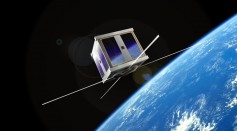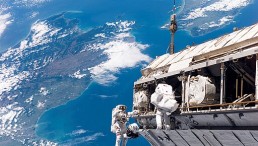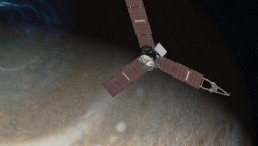astronomy
The Earth Now Has a Flag to Plant on Mars

Travel to Mars Focus of Toronto Conference
How the ISS Plans on Getting Rid of Space Debris—Plans to Vaporize Comets in Space
A New Vehicle in the Works to Investigate the Hellish Atmosphere of Venus
Russia Restarts Progress Spacecraft on ISS After Failed First Attempt
SpaceX Aggressive Schedule Leading to Manned Space Flights

New Technique May Help Find Traces of Life on Mars
SpaceX Earns Certification to Launch NASA Science Missions

NASA Searches for Small Satellite Launchers
Rare Quasar Quartet is the First of Its Kind
Burning Up Over Siberia—Russian Rocket Disintegrates Along With Mexican Satellite
NASA Probe Searches Pluto for New Moons and Rings

NASA Scientist Says Space Mining Needs Oversight

Humans May Not Have to Carry Oxygen to Mars
Most Popular

What’s Inside the Moon? Lunar Seismic Data Reveals Earth-Like Core

Plato’s Long-Lost Grave Found Using AI To Decipher Herculaneum Scrolls; Greek Philosopher Had Been Sold Into Slavery: Report

Most Credible UFO Encounter: Man’s Glove Melted and He Suffered From Burns After Alleged Encounter in Falcon Lake Woods

UFOs Piloted by Spiritual Entities? Fox News' Tucker Carlson Makes Bizarre Claim, Suggests That They Do Not Behave According to Laws of Science






